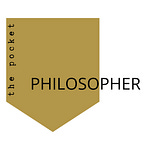Philosophers,
Today we’re continuing our crash course, hitting the wave tops of the most important ideas in philosophy. By important, I simply mean those that made the most impact in their time, and continue to do so even today.
This week we’re focusing on Euro-centric philosophy, and next week will be Ex-European.
Jesus is a figure which could have fit into either category. Interestingly, early Christianity emerged in response to Roman occupation of Jewish communities in Israel, but it was the occupying Romans who would eventually become responsible for Christianity’s European (and global) growth.
Without further ado, let’s get down into the philosophy of Jesus.
(PS, if you’re interested in a super unique and very interesting historical analysis of first century Christianity and proto-Christian communities, I highly recommend Richard Carrier’s On the Historicity of Jesus.)
Epistemology
To be frank, these categories will be a bit difficult today for the sheer reason that early Christian thought/traditions, the Jesus found in the new testament gospels, and the Christianity which would emerge in the centuries after are not necessarily consistent.
For example, proto-Christian communities appear to be hyper focused on liberation from Roman order, Jesus teaches love of neighbor and love of enemy, and later Christians claim violence and dominion as their God-ordained right.
Regardless of which thread we decide to pull on—however—there does appear to be consensus in Epistemology—that is, how Christianity claims we acquire knowledge and know what we know.
This could get a little complicated (in fact, there is a whole branch of Christianity, the Gnostics, which focused on acquiring knowledge the “right way.”) But collectively we see Christian knowledge acquired not through reflection or thinking as in other philosophies, but on spiritual meditation, prayer, and communion with a spiritual force (often called the Holy Spirit).
For example, Jesus teaches,
But the Advocate, the Holy Spirit, whom the Father will send in my name, will teach you all things and will remind you of everything I have said to you.
—John 14:26
This is a unique feature of Christian thought.
Ethics
We’ve actually done a whole newsletter on the history of Christian Ethics. At its core is a notion of what we might call, “layered loves.”
Jesus instructs to love oneself, to love one’s neighbors, and finally one’s enemies. As a faith emerging in a time of harsh, military occupation, this notion of loving even the oppressor is relatively unique in the ancient world, but hand in glove with later non-violent resistant movements or ideas like Buddhist non-harm.
Also, this ethic of love is not at all dissimilar from modern day care-ethics, an ethical construct which teaches the leveraging of compassion not rules as an ethical framework.
Love, compassion, and empathy are at the heart of early Christian ethics. Sadly, the empires which bore the banner of Christianity in the centuries to follow did not always adhere to this framework.
Ontology
This is again a unique consideration for Christianity. There is perhaps not necessarily a clean or strait-forward answer as we consider the object of Christian study. I would argue, however, that it would either be God, or Jesus-as-God.
Jesus was a student of God. This figure was, until Jesus, a distant king ruling over layers of heavenly realms. Jesus taught God not as distant, but an incarnate presence in this world.
For later Christians, they maintained this ontological focus, only this time focusing their study not only on God, but on Jesus as God-incarnate.
Greatest Work
I think an easy out to this would be, well, what we’d call the Bible. However, beyond that there are so many paths to walk.
We could pull on the thread of early monastic Christianity, proto-Christian writings, mediaeval philosophy (which we’ll study tomorrow), or any number of denominations or sects which emerged over the centuries.
Instead, I’ll leave you with perhaps the most interesting modern-day scholar and practitioner of this tradition. First a philosopher classically trained at American Universities, this Franciscan monk absorbs so many of the paths mentioned above into a somewhat coherent, helpful, and focused set of principles and practices.
Follow these links if you’d like to more about Richard Rohr—a Franciscan Monk—and his global non-profit The Center for Action and Contemplation.
I hope you enjoyed this philosophical analysis of Jesus and Christian thought.
Until tomorrow, have a great rest of the day!
Matt











